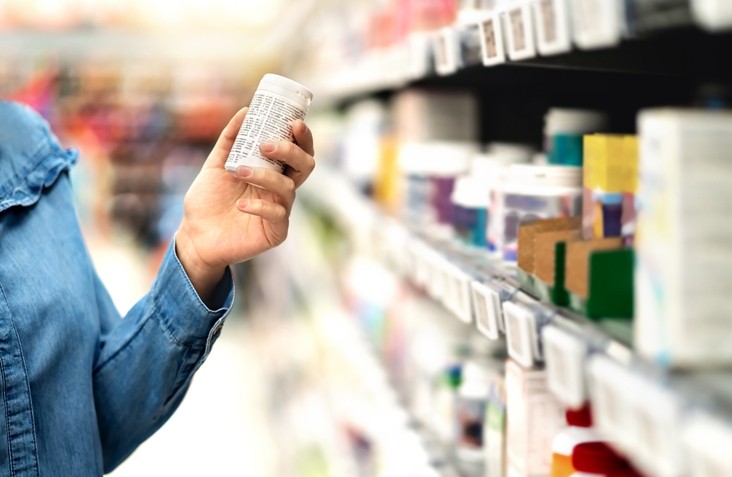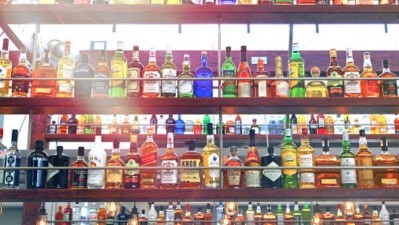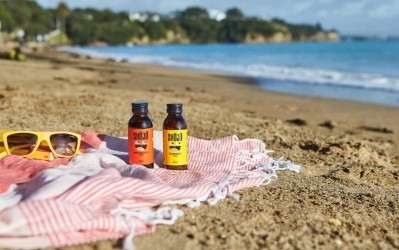Adulterated supplements: 17 per cent of herbal weight loss nutraceuticals sold in UAE contain synthetic drugs

Analysing 137 weight loss supplements, 17.5% of these contained significant concentrations of either sibutramine, phenolphthalein, or fluoxetine, which are active pharmaceutical ingredients on the FDA list of prohibited compounds.
These ingredients have many side effects, could be toxic and potentially fatal when taken without proper medical supervision, especially for people suffering from anxiety, hypertension, or heart conditions.
Many consumers choose herbal products that claim to promote weight loss, unaware that they may be adulterated with pharmaceuticals to create instant pharmacological reactions or boost the biological action of the supplement.
This study published in Molecules used analytical methods of chromatography and spectrometry to investigate the levels of adulterated substances in these weight loss supplements.
Data collection
Of the 137 weight loss supplements available in UAE, most were in the form of capsules (63.5%), followed by tablets (22.6%), and tea bags (13.9%).
Most of the supplements were made in US (48.9%), followed by EU (16.1%), China (5.1%), Malaysia (4.4%), India and UAE with 2.9% each, and Canada (2.2%). About 17.5% did not have a declared country of origin.
A reversed-phase high-performance liquid chromatography with UV absorption detection coupled to tandem mass spectrometry (RP-HPLC-MS/MS) analyses were used to determine the presence of the pharmaceutical chemicals.
The capsules and tablets were made into fine powder before analysing.
Top 3 adulterants
Among the weight loss supplements, 15.3% contained undeclared sibutramine, 13.9% contained undeclared phenolphthalein, and 5.1% contained undeclared fluoxetine. In total, 17.5% of all supplements contained significant concentrations of either sibutramine, phenolphthalein, or fluoxetine.
Sibutramine was found in 21 samples at varying levels of 0.14 to 16,823.3 mg/kg. According to researchers, past research also showed sibutramine was the most frequent illegal additive in herbal weight loss preparations.
“Sibutramine is added to dietary supplements promoted for weight loss because it exploits noradrenaline and serotonin reuptake inhibitors, leading to increases in the synaptic concentration of these neurotransmitters and subsequently activating the α-adrenoceptors, β-adrenoceptors, and serotonin receptors. These chemical effects cause people to feel more sated and burn more energy, which leads to a drop in body weight,” researchers wrote.
However, the side effects of sibutramine can range from headaches to hepatitis, psychosis and arrhythmia depending on the amount of drug ingested.
The second most frequent illegal additive in herbal weight loss products in this research was the laxative phenolphthalein, which was found in 19 samples at levels of 1.9 to 13,218.8 mg/kg. The damaging side effect of phenolphthalein is an increased risk of cancer.
The third most frequent illegal additive found in weight loss supplements was fluoxetine, found in seven samples at levels between 12 to 193.97 mg/kg. Fluoxetine is an anti-depressant with side effects of nausea, drowsiness, and tiredness.
UAE compared to other countries
The findings of this study revealed that weight loss herbal supplements sold in UAE have relatively low percentages of undeclared pharmaceuticals at 17.5%, compared to other countries like Iran and South Korea.
Past research in Iran found 72% of 61 products sold for weight loss contained pharmaceutical chemicals, while in Korea, nine additives was found in 76 out of 370 samples (21%).
The lower rate of adulteration in UAE may be due to the regulations in the country, with municipalities and health regulators insisting that every dietary supplement sold must participate in registration to prove that they are efficacious, of acceptable quality, and safe.
However, adulterated supplements are still present in UAE. One reason for this is that they are often marketed and sold on the Internet or social media, where they can avoid strict controls and do not necessarily have to satisfy safety or control testing prior to marketing and selling.
Despite the lower proportion of adulterated supplements in UAE, the results are still concerning since many of these consumers may take several different supplements daily and may face high levels of combined toxic exposure.
In this study, it was also found that supplements with no country of origin is listed on the product was more likely to contain undeclared prescription drugs or chemicals (66.7%) compared to products where the country of origin is stated (7.1%).
Recommendations
To protect public health, it is essential that weight loss dietary supplements should be effectively screened for undeclared pharmaceutical chemicals.
Researchers said: “A reliable method should be employed to detect counterfeit supplements and any adulterants, e.g., simple spectrophotometric analysis and near-infrared spectrophotometry. Several novel portable devices to identify drug adulterants are now available.”
It is not just testing for additives, “There should be robust laws developed that ban such illegal products from being sold, marketed, or advertised on television.”
“Information regarding the dangers presented by such products should be made available to healthcare workers, including practicing physicians, pharmacists, and nutritionists.”
These findings will help the regulatory bodies in developing a risk assessment module for the safety of weight loss supplements.
Source: Molecules
https://doi.org/10.3390/molecules26226903
“Adulteration of Weight Loss Supplements by the Illegal Addition of Synthetic Pharmaceuticals”
Authors: Ammar A. Jairoun, et al.


















